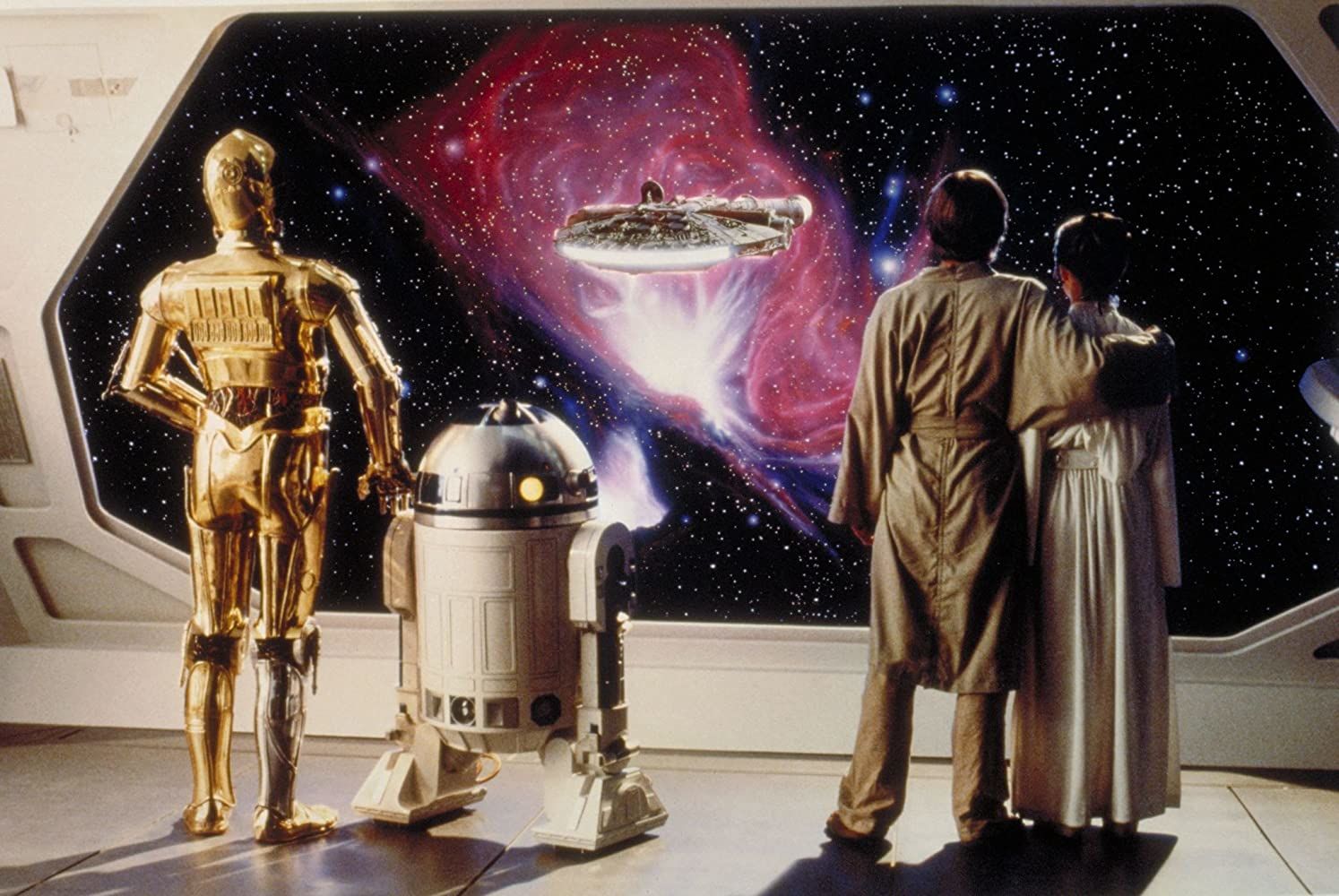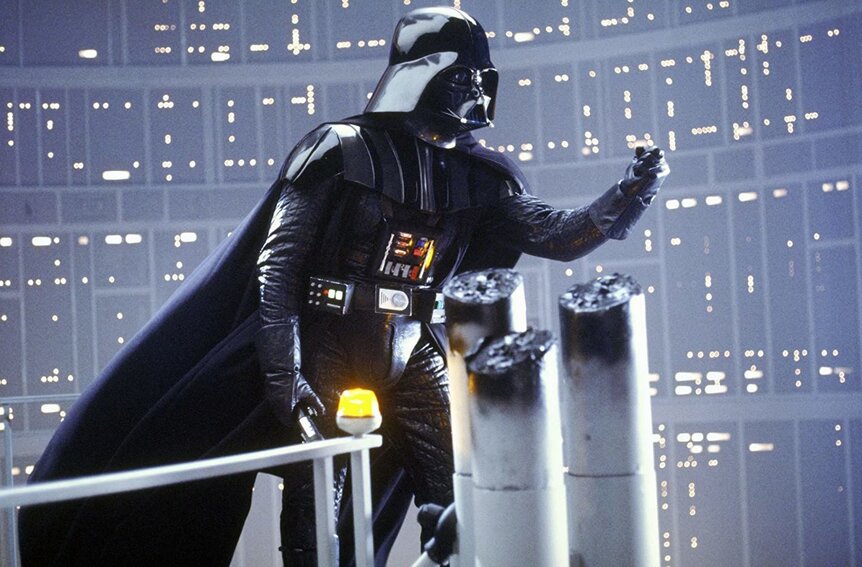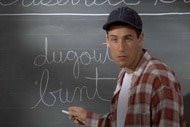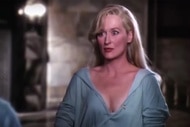Create a free profile to get unlimited access to exclusive videos, sweepstakes, and more!
Why is it so hard to pull off an Empire Strikes Back-level ending?

If I had a dollar for every time a film review referred to some sequel as, "the Empire Strikes Back of this franchise/generation/etc." I'd have... probably eight or nine bucks. It's not a weekly occurrence or anything, but it has happened enough for me to notice. Avengers: Infinity War. Pirates of the Caribbean: Dead Man's Chest. Harry Potter and the Deathly Hallows – Part 1. The Hunger Games: Mockingjay – Part 1. The list goes on.
Landmarks like Empire becoming cultural shorthand almost always necessitates a lack of nuance and removal of the totality of their context. The comparison is understandable. It's hard to say if Empire's open cliffhanger of an ending is the single most famous thing about it but it's probably in the top five. ("I am your father" probably takes the top spot.) As such, it only makes sense that it became a piece of cultural jargon when talking about bombastic blockbuster sequels that end on unresolved plot points, always with the intent of setting up the plot of the sequel. And, four decades later, it seems like a fitting time to explore what made Empire's ending so great — and why it's so hard to replicate, despite current-day Hollywood's best efforts.
At the end of Empire, things are certainly bleak. Luke fails to defeat Darth Vader and plays little to no part in saving his friends, who mostly manage to escape through scrap and luck. He also experiences a cataclysmic shift in his understanding of his place in the world when Darth Vader reveals that he's his father. Han Solo and Leia Organa finally confess their love for one another, only for Solo to get frozen in carbonite and shipped off to Jabba the Hutt by way of the bounty hunter Boba Fett. Luke's Jedi training remains incomplete. The Rebel Alliance is scattered in the wind. But, Leia and Luke manage to reunite thanks to the help of their friends and the reformed traitor Lando Calrissian. The battle is lost, but the war rages on.
Oftentimes the cliffhangers and downer endings that draw such clear inspiration from Empire misunderstand the nuance of how its story is resolved — which, crucially, it is.
There are plot threads left open, sure, but the narratives set into motion in the film's first act are all resolved, albeit not the way viewers expected or even wanted. Every character's arc comes to a sensible resolution. Every narrative thread is concluded. Its greatest cliffhanger is not narrative but existential, that being the revelation of Luke's parentage. That revelation isn't merely a plot mechanic but a shift not only in Luke's understanding of himself but of our understanding of everything that has come before and everything that will come to be in the world of Star Wars.
As massive a revelation as it feels, it's also microscopic in terms of the story's scale. A young man's revelation as to who his father really is has little to no effect on the fate of the Rebel Alliance, the rescue of Han Solo, or the battle between the Jedi and the Sith — yet it feels cosmic, going down as one of the single most iconic movie moments of all time ("iconic" is a played-out term but there's no denying that if there's a single film moment it applies to, it's this).
Perhaps this is why it feels so off to compare the ending of a movie like Infinity War to that of Empire. Both end in the failure of their protagonists but the former's failure, despite having literal galactic-scale consequences, is so largely removed from the arc of the characters the film follows (mostly due to focusing more on bombast and plot mechanics than character arcs). It's also pertinent to note that a sequel taking on an ending of the Empire variety is a futile effort if the date to the follow-up film in which any and all cliffhangers will be resolved has already been announced (doubly so if the sequels were filmed back-to-back).
We now know just how wide a scope the Star Wars story has today, but when Empire was released it was just a sequel. Folks probably had at least some inkling of an idea that a third movie would come but that third movie was far from the predetermined/pre-announced thing that something like Pirates of the Caribbean: At World's End or Avengers: Endgame was (even more so in the case of Deathly Hallows and Mockingjay, films whose cliffhangers are undercut both by the "Part One" in the title and in the fact that those anxious to find out what happens next need only read the source material). The narrative of Empire was all they had at the time, with no indication as to when the story's open plot threads would be tied off.
The difficulty in recapturing that meta aspect of Empire's ending is, by no fault of any filmmakers looking to it for inspiration, nearly impossible to pull off these days. The state of blockbuster filmmaking is too planned out, too micromanaged, and ultimately too predictable for something to truly catch viewers off guard the way the second Star Wars movie did.
"Nearly" is a crucial word there, though. Every now and then a John Wick: Chapter 2 comes along. Quietly one of the great sequels of all time, it draws all the right kind of inspiration from Empire, centering the narrative on an expansion of the world presented in the first one but never straying far from its titular protagonist's journey through it. The game-changing revelation in its third act is one simultaneously insular to the protagonist's journey. Wick, realizing the game he's been dragged back into is rigged, breaks The Rules for the first time and finds himself pronounced "excommunicado" from the underground world of assassins. It's the logical conclusion of a character arc as much as it is an upending of both our understanding and John's understanding of his place in this world. While its cliffhanger is a bit more direct and abrupt than anything in Empire, the sentiment is the same: John has changed, the world he inhabits has changed, and there's absolutely no telling what comes next (especially as a sequel had not been formally announced or greenlit when the film was first released).
There's no shame in falling short of reaching for the height of Empire. It remains an unprecedented accomplishment and, man, you can't just expect something like that to be duplicated annually. Still, in reaching for those heights it's perhaps important to consider how the film went about reaching them in the first place — not through bombastic cliffhangers and stopping a narrative before its natural conclusion but rather by taking the audience's expectations of how these sort of stories end and upending them entirely.
The views and opinions expressed in this article are the author's, and do not necessarily reflect those of SYFY WIRE, SYFY, or NBCUniversal.















